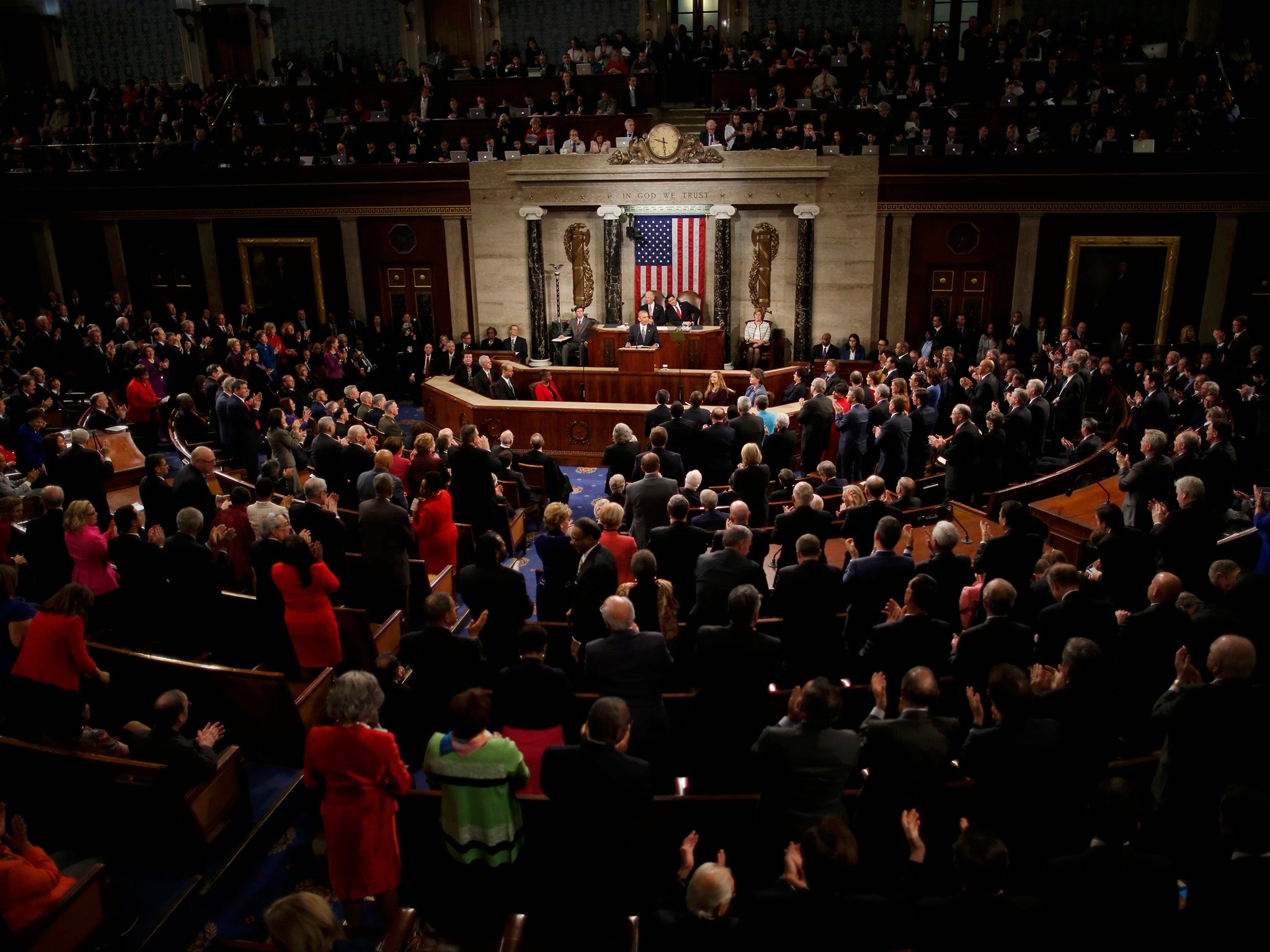State of the Union address 2016: Obama describes "rancor and suspicion between parties"
President Obama remarks the the deep political divides in the United States.

President Obama has now served in the Oval Office for seven years and has learned repeatedly about the real limits on the power of the bully pulpit. Yet in his final address on the State of the Union Tuesday night, Obama repeated one of the most pervasive myths about the presidency: that the occupant of the White House, through words alone, can overcome the division of American politics.
"It's one of the few regrets of my presidency -- that the rancor and suspicion between the parties has gotten worse instead of better. There's no doubt a president with the gifts of Lincoln or Roosevelt might have better bridged the divide," Obama said.
Obama's choice of predecessors is revealing. While both were renowned for their rhetorical abilities, there is little evidence that President Lincoln or President Franklin Delano Roosevelt had much success in persuading the public or members of Congress to put aside their differences.
After the the South's secession, Lincoln still had political opponents in the North. They even greeted the Gettysburg Address, regarded as one of his finest oratorical achievements, with derision. The Chicago Times, a Democratic paper, called the speech "silly, flat, and dishwatery."
Lincoln gave that speech more than a century and a half ago, so it's impossible to quantify its effects on public opinion. Since Reconstruction, though, data is available -- compiled by the political scientists Keith Poole of the University of Georgia and Howard Rosenthal of New York University -- on votes taken by members of Congress and the frequency with which they agree with one another.
As their chart shows, the degree of polarization in Congress seems to follow patterns that endure for longer than any single presidency.
In pictures: Obama's advisers
Show all 3Roosevelt -- who was president from his first inauguration in 1933 until his death in 1945 -- presided over a period of remarkably little polarization in Congress. Democrats had become more conservative, and Republicans more liberal on the whole, and they agreed frequently with one another on the issues that came to a vote.
Roosevelt did not create this amiability, though, and there is little evidence that anything he did had the effect of promoting unity.
The political scientists Matthew A. Baum of the University of California, Los Angeles and Samuel Kernell of the University of California, San Diego examined the relationship between Roosevelt's famed radio addresses and the number of Americans telling Gallup that they approved of the president. Taking into account economic conditions, those fireside chats were associated with an increase of less than one percentage point in public approval in peacetime and none at all during the Second World War, the researchers found.
Baum and Kernell's research is part of a larger body of evidence indicating that no president has ever had much sway over the American people. By selling his own polemical talents short, Obama risks perpetuating the myth that the power of the presidency is the power to persuade.
Many of his liberal critics have argued that the president's belief in the possibility of compromise led him to concede to congressional Republicans on his budgetary priorities in the mistaken hope of reaching a bipartisan bargain. In his final year in office, Obama isn't ringing up offices on Capitol Hill to pursue any major legislative initiatives. It seems that he still cherishes his faith in civility and cooperation, and regrets he wasn't able to make them a reality.
History, political science and the experience of the Obama administration all suggest that the lack of civility and cooperation isn't the problem, just a symptom of a country with deeply diverging views of taxation, welfare, social mores, immigration and race.
Washington Post
Subscribe to Independent Premium to bookmark this article
Want to bookmark your favourite articles and stories to read or reference later? Start your Independent Premium subscription today.

Join our commenting forum
Join thought-provoking conversations, follow other Independent readers and see their replies